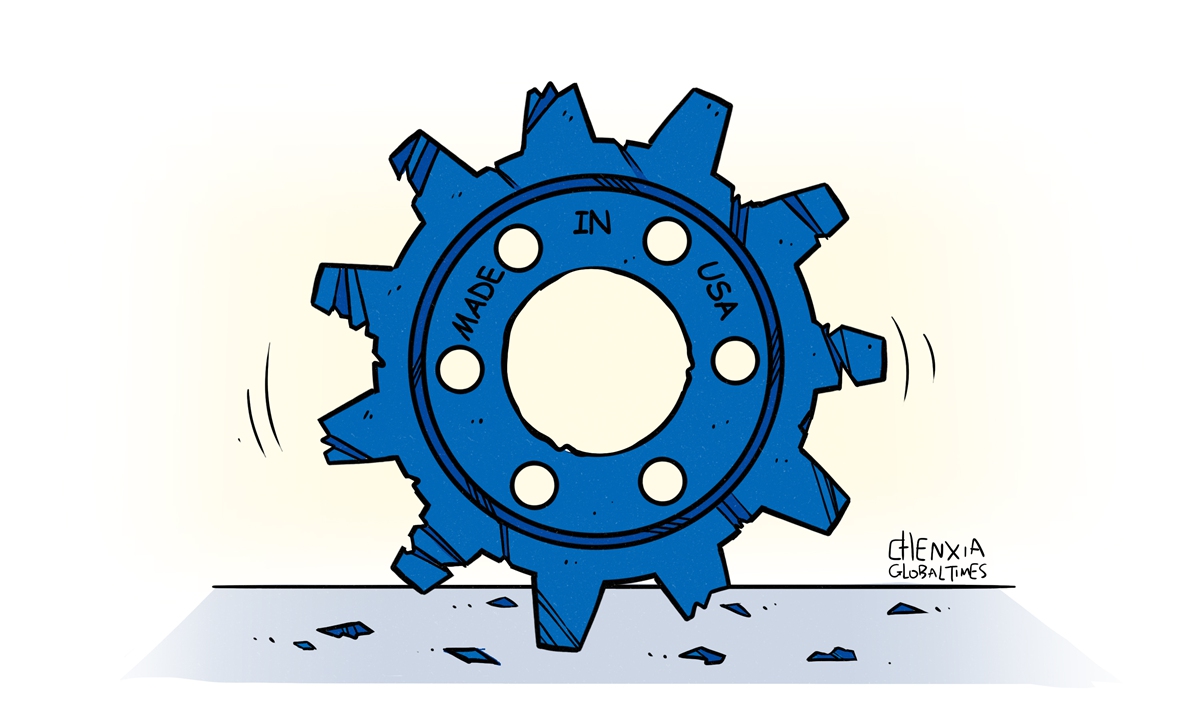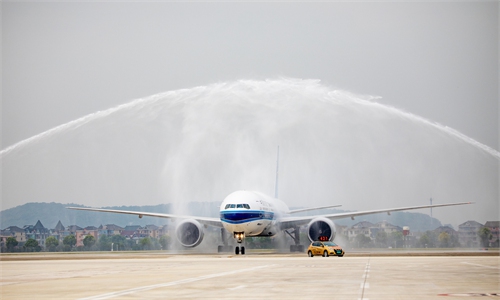
Illustration: Chen Xia/Global Times
Boeing Co Chief Executive Dave Calhoun on Tuesday pointed toward future increases in narrow-body jet production and voiced hopes that "an upcoming visit to China by US Secretary of State Antony Blinken would lead eventually to robust plane orders," Reuters reported. It's not difficult to read Boeing's ardent expectation for Chinese orders from Calhoun's words.Last week, Boeing announced its financial results for the fourth quarter of 2022. Although it pushed to deliver as many aircraft as it could, the company posted a net loss of $663 million during the last quarter of 2022. For the full year, Boeing sustained a loss of $5 billion.
Aircraft manufacturing was one of the most affected industries from the COVID-19 disruptions. As business activities gradually recover from the pandemic, and global air travel continues to pick up, business insiders advise that manufacturers should prepare to ramp up aircraft production rates, and there is a basic premise for production capacity expanding: they must find the market for newly increased output.
China has one of the world's largest aviation markets by seats. According to the Financial Times, Boeing forecasts that one in every five commercial aeroplanes ordered between 2021 and 2040 will be for customers in China. It is no surprise that the US-based aerospace giant wants to get more orders and increase sales in the Chinese market.
However, Boeing faces fierce competition within the aerospace industry, particularly from Airbus. In July 2022, Airbus confirms the signature of orders with Air China, China Eastern, China Southern, and Shenzhen Airlines for a total of 292 A320 Family aircraft. Compared with Airbus, economic factors such as safety management processes-related issues have become a restrictive factor to affect Boeing's business growth in the Chinese market, especially after the earlier grounding of Boeing 737 MAX planes due to safety concerns.
Boeing's predicament provides a reference for us to observe US manufacturing industry and Washington's "reshoring" push. If US President Joe Biden wants to resurrect American manufacturing, he must start with the recognition that the sector has changed. The global oversupply will rise further in the coming years amid the global economic downturn. Only by finding export markets can manufacturers be encouraged to increase investment in the US and form a market-oriented and sustainable manufacturing development.
In 2022, Biden signed into law several pieces of legislation that represent a revival of industrial policy, including the Inflation Reduction Act. By subsidizing products manufactured in the US, Biden's economic policies are being touted as leverage to strengthen American manufacturing, supply chains, and national security. However, Biden, like former US President Donald Trump, advocates for greater trade protectionism and believes the US must "decouple" from China by reducing US dependence on the Chinese market. Biden's trade policies have set obstacles for US-based manufacturers to expand key overseas markets, and these problems cannot simply be solved through a single visit to China by Blinken.
The IMF said Tuesday in a quarterly update to its World Economic Outlook that it expects global GDP growth will slow from 3.4 percent in 2022 to 2.9 percent in 2023. It said China and India together will account for half of global growth this year, while the US and the Euro-area combined will account for 10 percent only. The IMF report shows that China will continue to be the engine of global economic growth, which means that the competition of multinational companies in the Chinese market will greatly affect their global performance.
Boeing is one of US best-known manufacturers and a leading exporter of manufactured goods, working with about 13,000 small, medium-sized and large suppliers. As the core of the industrial chain of the US aviation sector, Boeing holds a pivotal position in the American manufacturing industry. If the Biden administration hopes to resurrect American manufacturing, politicians in Washington should be aware of the importance of the Chinese market for the US aerospace giant.
The author is a reporter with the Global Times. bizopinion@globaltimes.com.cn



